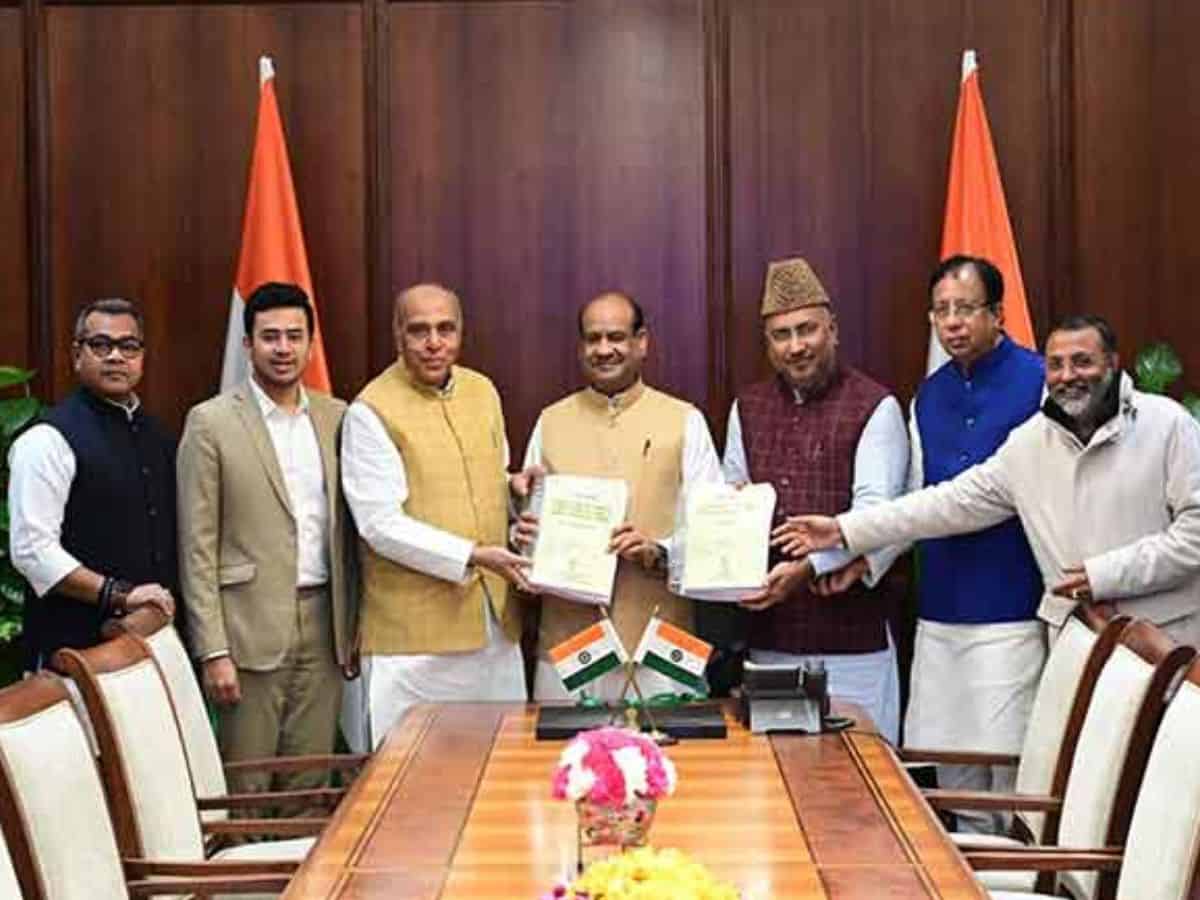
The Lok Sabha Report of the JPC Waqf Amendment, 2024 is a flawed, partisan document that claims to address various issues related to the protection, management, and governance of Waqf properties in India, but succeeds in enabling the opposite. Let me in my meandering way explain why that is my analysis.
Waqf is permanent dedication of movable or immovable property for religious, pious, or charitable purposes as recognized by Islamic law. Courts have held “Once a waqf, always a waqf.” Yet Waqf properties are often subject to encroachment, mismanagement, or illegal occupation. Stricter penalties for encroachment and illegal transfer of Waqf properties could deter such activities and ensure better protection of these assets.
Could or whether it would is a debatable thing. Considering that it would be extremely unlikely given the strident anti-waqf anti-minority clamour that prevails in the country and given the fact that even under the present dispensation, properties and heritage monuments which remind one of an Islamic or Muslim past are sought to be erased or otherwise denigrated, not to speak of their being left utterly neglected with no attention whatsoever being paid to their preservation, restoration or even maintenance by a regime that has allegedly begun to adopt a mindset hostile to minorities particularly Muslims.
The report claims that it empowers Waqf Boards with greater authority and resources to manage and protect Waqf properties effectively. You will see articles 331 and 333 of the constitution stipulate that if certain categories of people are not fully represented in Parliament and in state legislatures the president and the governor can nominate people of that category to those houses. Obviously this is in recognition of the fact that unless persons who are stakeholders in beneficial policies of the government are placed in positions where their voices can be raised to ensure proper implementation of those policies the beneficial results would not reach the targeted classes.
Stakeholders
If people who are not stakeholders are at the helm of affairs of these policy implementation mechanisms then obviously those at the helm would be completely disinterested resulting, as in the case of Urdu, unutilized budgets lapsing with that as a ground resulting in lower allocations in subsequent budgets and the gradual death of what ought to be promoted and even celebrated. When we see that government repeatedly claims Waqf property as its own taking advantage of flaws in maintenance of records of which it itself is the custodian, one wonders how serious non-Muslim officials would be in ensuring the protection and recovery of Waqf properties from encroachers.
This might appear to be a slightly skewed view considering that there is a traditional mechanism to address all issues but the fact of the matter is that the judiciary has not painted itself in very glorious colours in these matters during the past three decades and in quite a few matters otherwise also during the past decade and a half. Therefore when these issues of misgovernance, mismanagement, encroachment, missing or absent records, conflicting records, competing claims from vested interests are taken at the door of the judiciary it is not necessary that the resolution of the dispute be what it ought to be.
In recent times substantial extents of property with undeniable records of waqf character have been held not waqf with one notable judgement quashing a gazette notification adversely affecting innumerable waqf properties and their vast extents of land. Many of these tracts of land are in rural areas where the law itself postulates notice by beat of drum and not by paper notices served on individuals (no one lives on open extents of land) but lack of notices is apparently the ground on which the gazette was quashed.
It is my view that there is also a lack of understanding of the institution of Waqf and that is the kind of factual situation which led the court at one stage to say that the waqf board should pay the salaries of imams of masaajid (plural of masjid), apparently oblivious to the fact that a Waqf is an institution where the Waaqif (creator of the waqf) stipulates what can and cannot be done and the 7% waqf fund which the waqf board collects is for its own supervisory expenses and staff salaries and not for other purposes inconsistent with the Mansha’-e-Waqf (Intention with which the waqf was created).
My experience
One can only hope that what I experienced the other day personally does not become a trend: one judge asked me pointedly why I was appearing for Pakistani citizens in a legal dispute where their predecessor had died in India as an Indian citizen and they would inherit some share in the property the deceased left. I would have hoped that the judge consider it an opportunity to show the world what Indian Justice is like based on the ideals that the judiciary here pursues, rather than saying something demonstrative of a completely regrettable approach. This despite the constitution and the judicial climate and umpteen judgments making it clear that not just a Pakistani citizen even a person accused of the gravest of crimes is entitled to legal representation to ensure he/she gets justice. What can one say? O tempora ! O mores !!
The judiciary in India is constitutionally designed to be independent and objective, but in practice, its functioning has sometimes raised questions about its freedom from government and political interference. The Constitution ensures judicial independence through fixed tenures, removal only through impeachment, and financial autonomy. The judiciary has in the past delivered judgments that demonstrate its independence, defining Parliament’s power to amend the Constitution, establishing the doctrine of basic structure, strengthened and protected investigative agencies but that is past. Today, those very agencies are now widely said to be used as tools of the State to silence critics.
At the end of the day every dispute reaches the tribunals and courts, and where executive interference and even indirect control of judicial appointments compromises judicial independence, instances are not unknown where the judiciary appears to favour the government by issuance of stay orders or putting cases that could politically embarrass the ruling party on the back burner, especially as some cases can be seen as impacting elections. Government appointed judges, susceptible to transfers and post-retirement slots are expected to fairly adjudicate claims where the government which appointed them is a competing claimant. Of course they can. Whether and how, remains to be seen.
Amendments would not help
Therefore, it is my view that the amendments would not lead to any improved governance, or better utilization of Waqf assets, or increased accountability in the functioning of Waqf Boards. On the contrary I expect the reverse to happen. The amendment is one part and the implementation of that amendment is an entirely different matter and is predicated upon the mindset of the people who shall be doing the implementation.
To illustrate my point the constitution permits amendment to ensure it is not a static document and is capable of evolving but where the evolution intended by the framers of the constitution was to make the constitution more inclusive, more pluralistic, more democratic and the electoral process one that ensures greater and more diverse representation in elected bodies, we find that a majoritarian approach has resulted in bulldozing amendments that derogate from that set of ideals values principles etc that the framers of the constitution intended should inform every aspect of national life.
The Waqf amendment proposes digitalization of Waqf records and the creation of a centralized database for Waqf properties. This is again a most sensitive area because when the institution of government itself claims that properties belong to it and are not properties of Waqf Institutions, thinking of what can and probably would happen during this digitalization process which can be a completely opaque and slanted exercise does not need great imagination. One report had once suggested that during a lockdown large volumes of Waqf records were taken away by the government and why the government would want to do that is more than obvious.
Digitalization and disputes
Digitalization as such would not reduce disputes over property ownership, and hence would not make it easier to monitor and manage Waqf assets, especially where the very contention is on the part of government that the property in question is not waqf. Officers of the government which claims that the properties are its own are going to be expected to create the digitised regime of properties which declare them to be waqf contrary to the claims of the very organisation that has employed them? It amazes me that we are expected to have reached that degree of integrity in performance of our duties according to our conscience free from the biases that colour our “national narrative of bias”.
Moreover enhanced transparency would be a prerequisite at the stage of preparation of the list of waqf properties, and in the past we have seen that carefully prepared detailed survey reports of Waqf properties by government officials are still called in question by the government itself and when that is the state of affairs to expect that after quashing of gazette notifications affecting thousands of properties, after the calling in question of carefully prepared waqf survey reports by qualified personnel of the government itself, after strident calls all over the country effectively seeking destruction of waqfs, for the government to claim that it is interested in an exercise to protect these properties appears laughable. That is not going to happen. And from the fact that the bill was passed with the objections of the members of the opposition not being taken into consideration tells us everything that is to know about the exercise that is planned and the manner in which it is likely to be executed.
To be continued…




